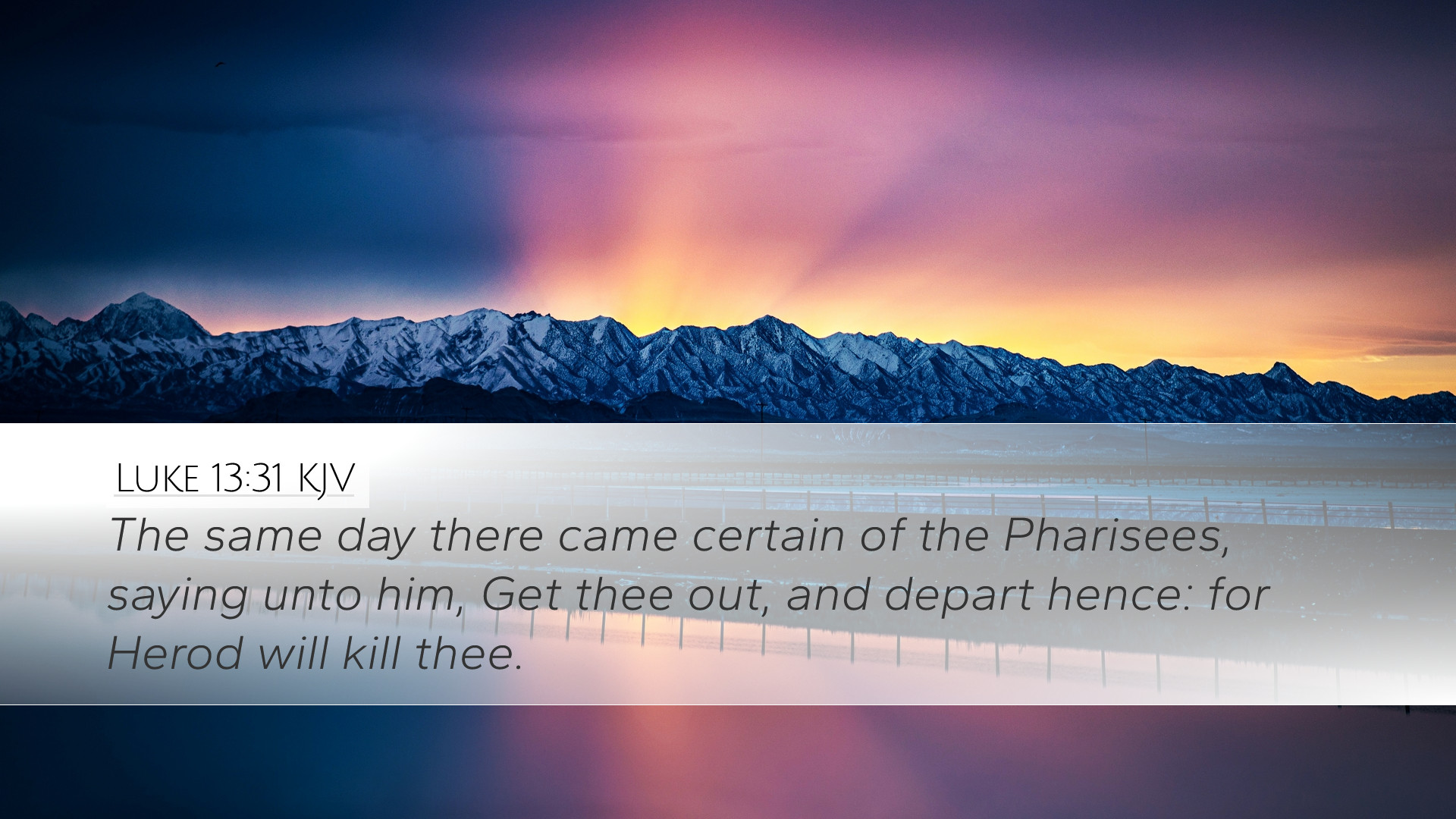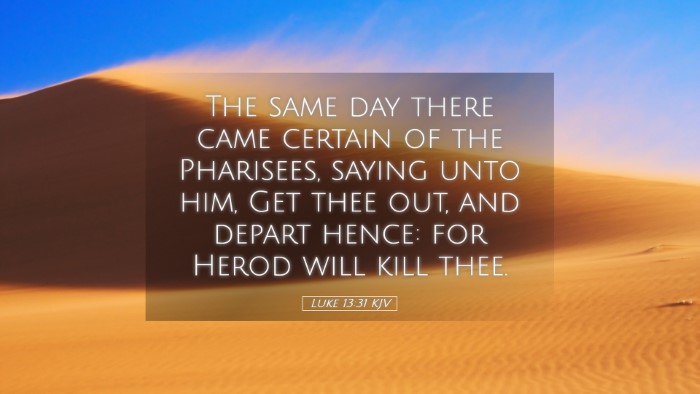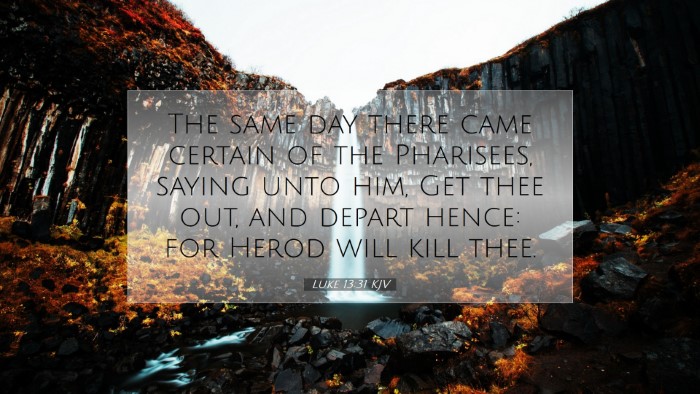Commentary on Luke 13:31
Luke 13:31 states, "At that time some Pharisees came to Jesus and said to Him, ‘Leave this place and go somewhere else. Herod wants to kill you.’” This verse provides a glimpse into the tension surrounding Jesus' ministry, particularly regarding His relationship with political powers and religious authorities.
Contextual Analysis
This passage is situated during a critical phase of Jesus' ministry as He journeys towards Jerusalem. The Pharisees’ warning about Herod's intent to kill Jesus underscores the increasing hostility and danger facing Him, a theme that Matthew Henry accentuates throughout his exposition.
Insights from Matthew Henry
According to Matthew Henry, the Pharisees, despite being adversaries of Jesus, come with information that may seem protective but is ultimately laden with ulterior motives. He posits that they likely intended to convey a false concern, hoping to provoke Jesus to retreat and thus undermine His ministry:
- Deception and Fear: Henry points out that the Pharisees could have desired a pretense of concern, fostering fear rather than faith among Jesus' followers.
- Nature of Leadership: The warning signifies the pitfalls of worldly leadership, exemplified by Herod, whose tyrannical rule contrasts with the self-giving nature of Christ's mission.
Albert Barnes' Commentary
Albert Barnes offers a detailed commentary that emphasizes the political implications woven into this narrative. He highlights the following themes:
- The Persecution of the Righteous: Barnes sees this encounter as indicative of the fate that awaits God’s prophets at the hands of worldly authorities.
- Christ's Resolve: Jesus' response, which is not recorded in this verse but follows, elucidates His unwavering commitment to His mission despite threats.
- Public vs. Private Opposition: Barnes notes the Pharisees' public stance versus their private machinations, illustrating the hypocrisy prevalent among those in spiritual authority.
Adam Clarke's Perspective
Adam Clarke provides a theological lens through which to view this incident. He addresses the following points:
- Herod's Character: Clarke delves into Herod's fearful nature, suggesting that it stemmed from his guilt over John the Baptist’s execution and his antagonistic relationship with Jesus, whom he maligned.
- Jesus' Indifference to Threats: He interprets Jesus' subsequent remarks as a direct affront to Herodian power, portraying Him as fully aware of His identity and the inevitability of His sacrificial death.
- Call to Perseverance: Clarke encourages believers to remain steadfast in their faith amidst persecution, drawing parallels between Jesus’ experiences and those of modern Christians facing opposition.
Theological Implications
This verse sheds light on several theological implications that are essential for pastors and theologians:
- The Sovereignty of God: The situation illustrates God's sovereignty even in the face of political opposition, asserting that God’s purposes will prevail.
- Christian Courage: Jesus’ example is a model of courage under threats, reminiscent of Paul and the apostles' later perseverance in their ministries despite persecution.
- The Role of Adversity: The interaction points to the indispensable role adversity plays in fulfilling God’s plan, pushing Jesus toward His ultimate destiny.
Application for Today's Church
For modern-day readers, this passage conveys critical lessons for the church:
- Recognizing Motives: Believers are cautioned to discern the motives of those who may seem supportive but hold malice in their hearts.
- Prayer and Action: The church is called to prayerful action, particularly when facing hostility, embodying Jesus’ example of steadfastness.
- Faith over Fear: As Jesus replied to threats with purpose and conviction, so too should the church confront fear with faith, trusting in God’s ultimate control over all circumstances.
Conclusion
Luke 13:31 serves as a powerful reminder of the complexities involved in Jesus’ earthly ministry, encapsulating the tension between faithfulness to God and the perils presented by earthly powers. The insights gleaned from Matthew Henry, Albert Barnes, and Adam Clarke deepen our understanding of this pivotal moment, enriching our theological reflection and application. Pastors, students, theologians, and scholars are encouraged to reflect on their own call within the framework of this passage, prioritizing loyalty to God’s mission even amidst societal pressures.


